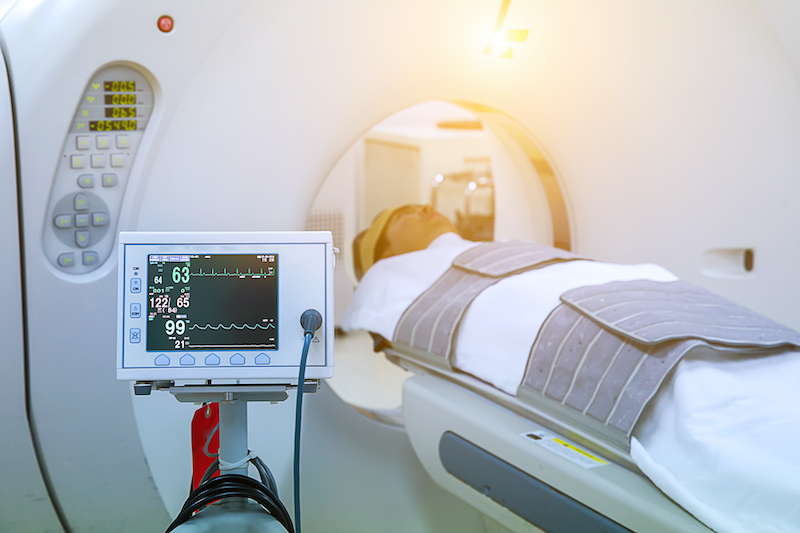If you have neck, back, shoulder, or knee pain and you are looking for an MRI or x-ray clinic in Visalia, you may not need this expensive test…at least, not right away.
Imaging Tests for Low Back Pain
Continue to Be Used Frequently Despite Potential Risks
Diagnostic imaging tests like X-rays, MRIs, and CT scans are important tools that can help doctors more clearly understand what’s happening in the body so they can reach or confirm a diagnosis. But just because these tests are helpful does not mean that they should be used at all times, or even frequently.
Low back pain is one of the most common medical conditions, and it will affect up to 80% of individuals at some point in their life. Imaging tests are only recommended when a “red flag” is present, such as signs of nerve damage, serious underlying problems like cancer or spinal infections, unexplained weight loss, bladder or bowel issues, and abnormal reflexes. If none of these red flags are present, most guidelines state that an imaging test is not needed, since it will not usually help to identify the source of pain.
Diagnostic Tests are Simply Overused – This Means You’re Paying for Something that Might Be Unnecessary
Despite these recommendations, diagnostic tests continue to be used frequently for various reasons. Some patients with low back pain request or demand an imaging test because they are seeking a concrete diagnosis, while many medical professionals may be more likely to order a test if they have the technology in their facility. It’s not clear how many patients end up undergoing an imaging test for low back pain, so a team of researchers performed comprehensive study called a systematic review and meta-analysis to investigate.
One-third of patients who go to the emergency department receive an imaging test
Those involved in the review performed a detailed search of several medical databases for studies that included data on the use of imaging tests for patients with low back pain. This search led to 45 studies being identified that fit the necessary criteria for inclusion into the review.
The Problem is Getting Worse?
These studies showed that there were nearly 20 million unique consultations to either a primary care physician or the emergency department for low back pain. These consultations resulted in nearly 4.5 million imaging tests performed over 21 years. Further analysis of these figures revealed that there was moderate-quality evidence that one-quarter of patients who initially consulted with a primary care physician were referred to imaging, as well as high-quality evidence that about one-third of patients who went to the emergency department underwent imaging. It was also found that the use of imaging increased by 50% over the 21 years covered in these studies, despite the presence of guidelines against this practice.
Overuse of imaging tests remains a pressing and alarming issue…
The results of this review show that overuse of imaging tests remains a pressing and alarming issue. Imaging tests are not only extremely expensive—costing an average of $1,119—and expose patients to potentially harmful levels of radiation in the case of CT scans and X-rays, but they can do more harm than good for many patients. This is due to the fact that imaging tests don’t always identify the cause of patients’ pain—especially for low back pain—and often reveal “abnormalities” unrelated to the pain that may be misconstrued as a cause. As a result, many patients undergo invasive procedures like surgery that may not lead to the desired result because it does not address the source of their pain, which is usually difficult to pinpoint.
Going down this road can be avoided by seeing a physical therapist first. Physical therapists rarely refer low back pain patients to imaging tests because they understand the many risks associated with this approach. Alternatively, they treat patients with a multifaceted, movement-based program that is designed to address their symptoms according to their needs, abilities, and goals.
See Us for a Consultation First. You May Need an Expensive Test…But, You May Not!
Visit our contact page for more details or call us at (559) 733-2478.

